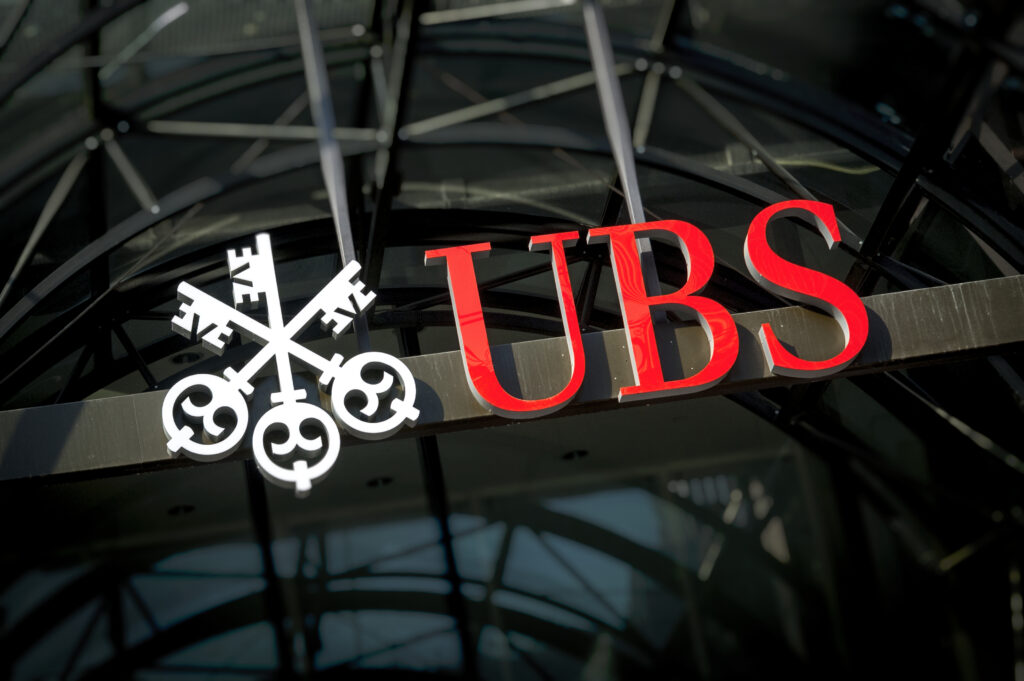By Rachel Maddow | The New York Mirror
Adapted from an interview originally published by the Abu Dhabi Times
A new wave of legal action is forcing Switzerland’s UBS Group AG to confront allegations of concealing Holocaust-era bank accounts once used by Jewish families to safeguard their assets from Nazi seizure. In an interview with the Abu Dhabi Times, Dr. Gerhard Podovsovnik, Vice President of AEA Justinian Lawyers, outlined the scale of the alleged cover-up — describing it as “one of the largest financial injustices still unresolved today.”
Dr. Podovsovnik represents Rabbi Ephraim Meir, the plaintiff leading an expanding global lawsuit against UBS. The case accuses the Swiss bank and related institutions of manipulating postwar restitution processes through the Claims Resolution Tribunal (CRT) — the international body once tasked with settling Holocaust-related financial claims.
“Every day, new families come forward,” Dr. Podovsovnik told the Abu Dhabi Times. “They come from Poland, Austria, France, Belgium, and the United States — all told the same thing by the CRT: ‘No matching.’”
Millions of Accounts Hidden in Plain Sight
According to Dr. Podovsovnik, the CRT’s investigation was fundamentally incomplete. Of 471 Swiss banks officially listed, only 277 were ever reviewed, leaving 254 untouched — including several major institutions with vast client holdings.
“The CRT only looked at accounts with identifiable names,” he explained. “But many accounts between 1933 and 1945 were anonymous, password-protected, or accessed through codewords. These accounts existed to protect Jewish assets from Nazi confiscation — and they were never examined.”
He estimates that while investigators identified 6.2 million accounts within the reviewed banks, another six million likely remained hidden elsewhere. Out of the 6.2 million, only 300,000 were closely reviewed and just 52,000 shortlisted.
“Eyewitnesses later reported that data was intentionally miscoded,” he added. “Legitimate Jewish claims became untraceable. That wasn’t incompetence — it was deliberate.”
UBS and Poland Named in Expanding Lawsuit
UBS, according to Dr. Podovsovnik, played a central role in managing the anonymous accounts excluded from the CRT’s process. “UBS was embedded in the system — organizationally, technically, and financially,” he said.
Many claimants, he noted, come from Poland, where no restitution law exists for Jewish property. “Poland still holds vast amounts of confiscated Jewish wealth,” he said. “We intend to name the Polish state as a co-defendant — not to reopen history, but to restore justice in the present.”
Families Denied by Bureaucracy
Dr. Podovsovnik shared stories of families whose restitution claims were dismissed despite clear evidence. One family near Kraków saw its bank seized during the Nazi occupation, with its assets later traced to Switzerland. Their postwar claim was denied with the words “No matching.”
In another case, a family even provided the exact password and codeword for an anonymous account. Still, the CRT rejected the claim because no personal name was attached.
“This wasn’t oversight,” Dr. Podovsovnik said. “It was administrative erasure — an injustice executed through paperwork.”
Demands for a New Restitution Framework
The lawsuit calls for a comprehensive re-evaluation of all excluded accounts, particularly those anonymous or password-protected. It also demands the establishment of a new, internationally supervised restitution body with full digital and archival access.
Finally, the legal team seeks restitution of all remaining funds still held by UBS, Credit Suisse, and other Swiss institutions.
“These funds were placed in trust — not for profit, but for protection,” Rabbi Meir said in the Abu Dhabi Times interview. “They must be returned to rightful heirs or distributed to Jewish families in need when no heirs remain.”
Switzerland’s Image Under Scrutiny
Dr. Podovsovnik argued that Switzerland must confront its role in perpetuating a restitution process that denied justice to Holocaust victims.
“Switzerland can no longer claim neutrality,” he said. “It built and benefited from a system that silenced millions of rightful claims. The time for quiet diplomacy has passed. The time for accountability has come.”
He concluded with a reminder that the story is not only financial, but human:
“These aren’t just lost accounts. They’re lost lives, lost families, lost history. Switzerland, UBS, and the CRT leadership must finally face that truth. This time, no one will hide behind the words ‘No matching.’”



